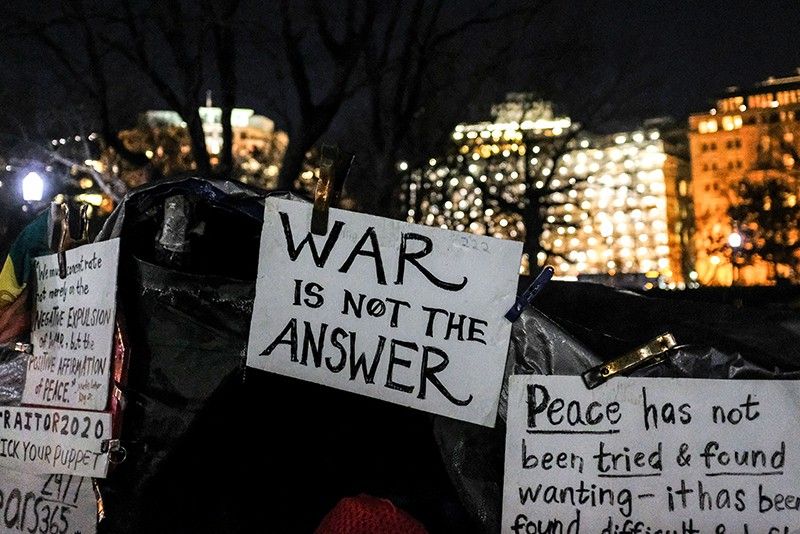How the Philippines felt the impact of US-Iran tension

MANILA, Philippines — Climate of terror reigned supreme in the past days after tensions between the US and its arch-foe Iran quickly escalated following the assassination of a top Iranian general.
Iran promised to avenge its influential commander, Qasem Soleimani, stoking war fears. On Wednesday, Iran retaliated and fired missiles at two Iraqi bases used by the US military.
But the dust appeared to have settled for now, with Iran’s foreign minister saying the Islamic republic did not “seek escalation or war” and US President Donald Trump announcing fresh sanctions on Iran and hinting Washington would not immediately take further military actions.
The recent developments sent shockwaves across the globe, and here’s how the Philippines felt them.
Financial markets
The looming spectre of war frayed investors’ nerves in the past days, rattling Philippine financial markets.
After Iran’s first retaliation, Philippine equities sank 1.33% on Wednesday as investors ran to safer haven assets like gold. The Philippines’ regional peers also suffered losses.
Meanwhile, the Philippine peso on Wednesday managed to get support from remittance inflows, closing almost flat against the US dollar amid risk-off sentiment arising from tensions in the Middle East.
Both Philippine shares and the local unit recovered Thursday as anxiety over the US-Iran situation eased.
Economy
The tit-for-tat assaults between the US and Iran sent world oil prices up, threatening net oil importers like the Philippines.
On Wednesday, global oil prices immediately jumped on the news of Iran’s counterattack, with the benchmark WTI (West Texas intermediate) spiking more than 4.5% to $65.54 a barrel before receding slightly, AFP reported.
But Bangko Sentral ng Pilipinas Governor Benjamin Diokno downplayed the impact of the US-Iran conflict on the economy, saying the government has the tools to keep inflation in check.
On remittance front, Diokno said most Filipino workers abroad are deployed in Saudi Arabia and not in Iran or Iraq.
Robert Dan Roces, economist at Security Bank, said an escalation of the tension between the US and Iran is not good for the Philippines.
“What’s worrisome at the onset is the effect to remittances if our overseas Filipino workers get demobilized from the region, given that the Middle East is the second largest deployment zone for our countrymen. Second, given that we are net importers of oil, we are sensitive to price shocks,” Roces told The STAR.
Saudi Arabia was the major source of remittances from overseas Filipinos with $1.78 billion. Remittances from Iran only reached $409,000 and from Iraq, $259,00 in the first 10 months of 2019.
Labor migration
The unrest in the Middle East prompted the Philippine government to send two battalions of soldiers, along with air and naval assets, to assist in the repatriation of Filipino workers in Iraq and Iran.
The Philippine Embassy in Iraq has issued Alert Level 4, calling for evacuation or mandatory repatriation in the country.
Meanwhile, the Labor department has been talking with other countries such as China, Russia, Canada, Germany and Japan for possible redeployment of OFWs from the Middle East. The agency is also working on livelihood programs for returning OFWs who wish to stay in the Philippines.
The estimated number of documented Filipinos in Iraq is at 1,600 while there are 1,000 in Iran. — Ian Nicolas Cigaral with reports from The STAR, BusinessWorld and AFP
- Latest
- Trending

































